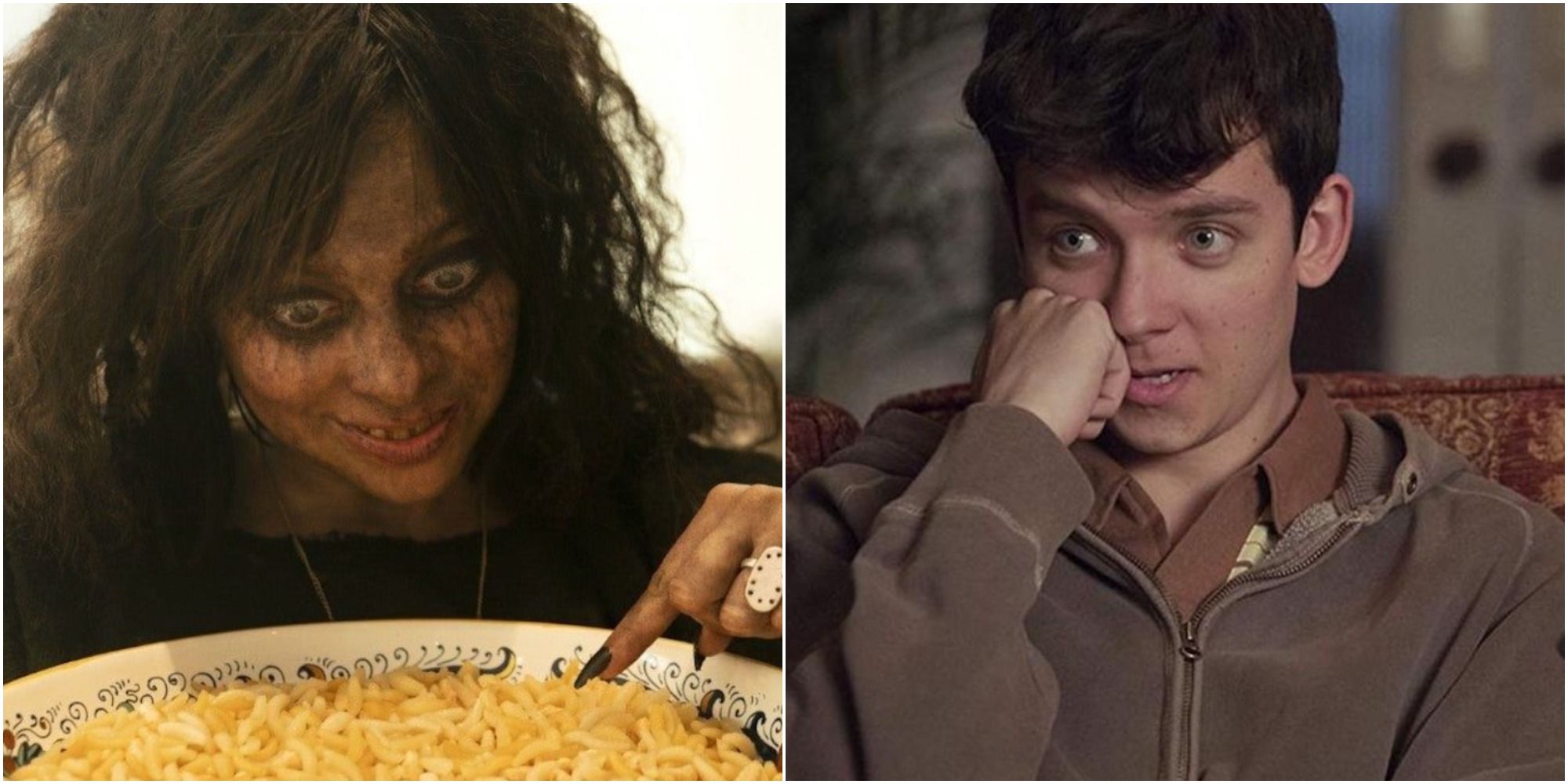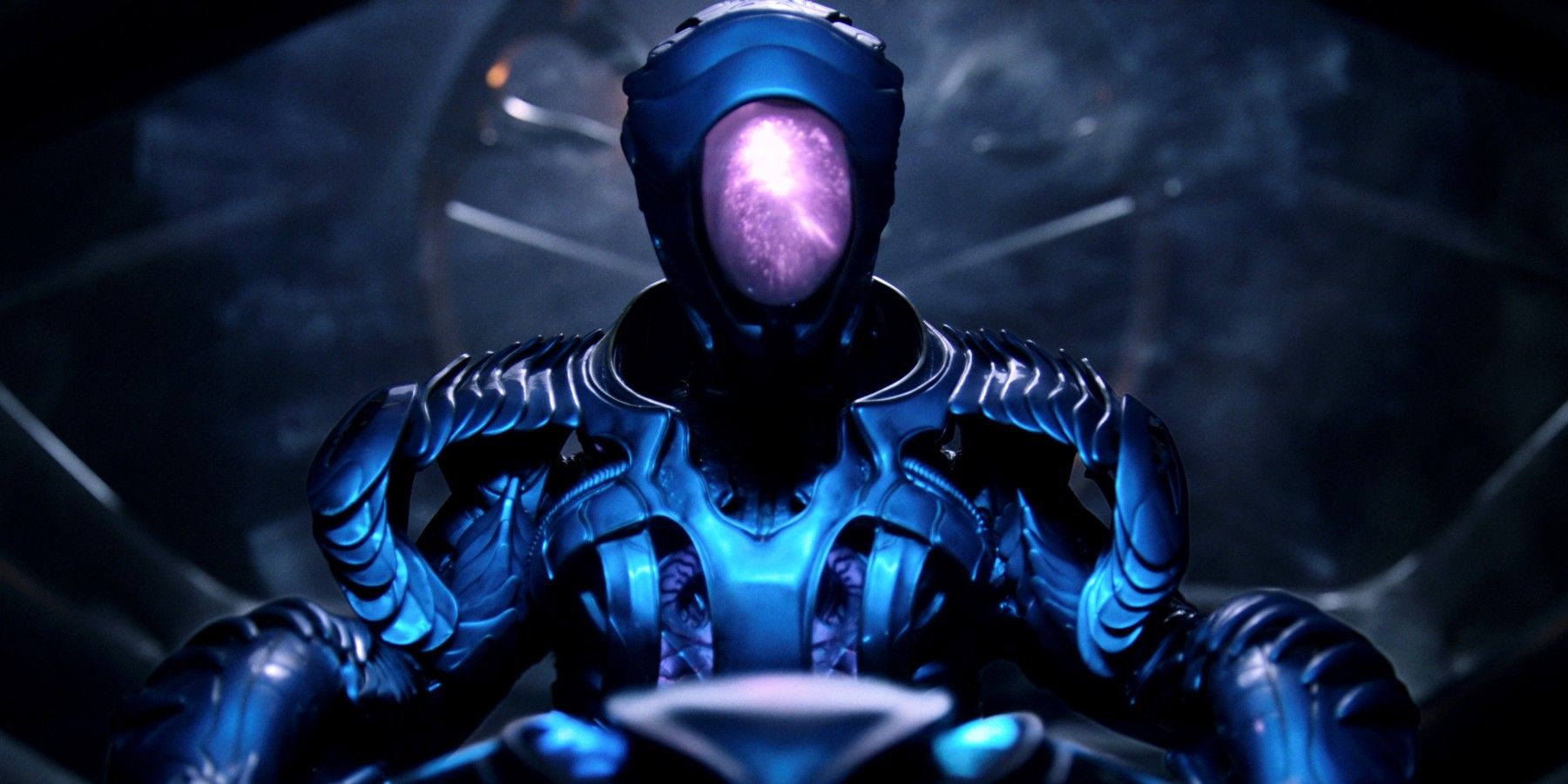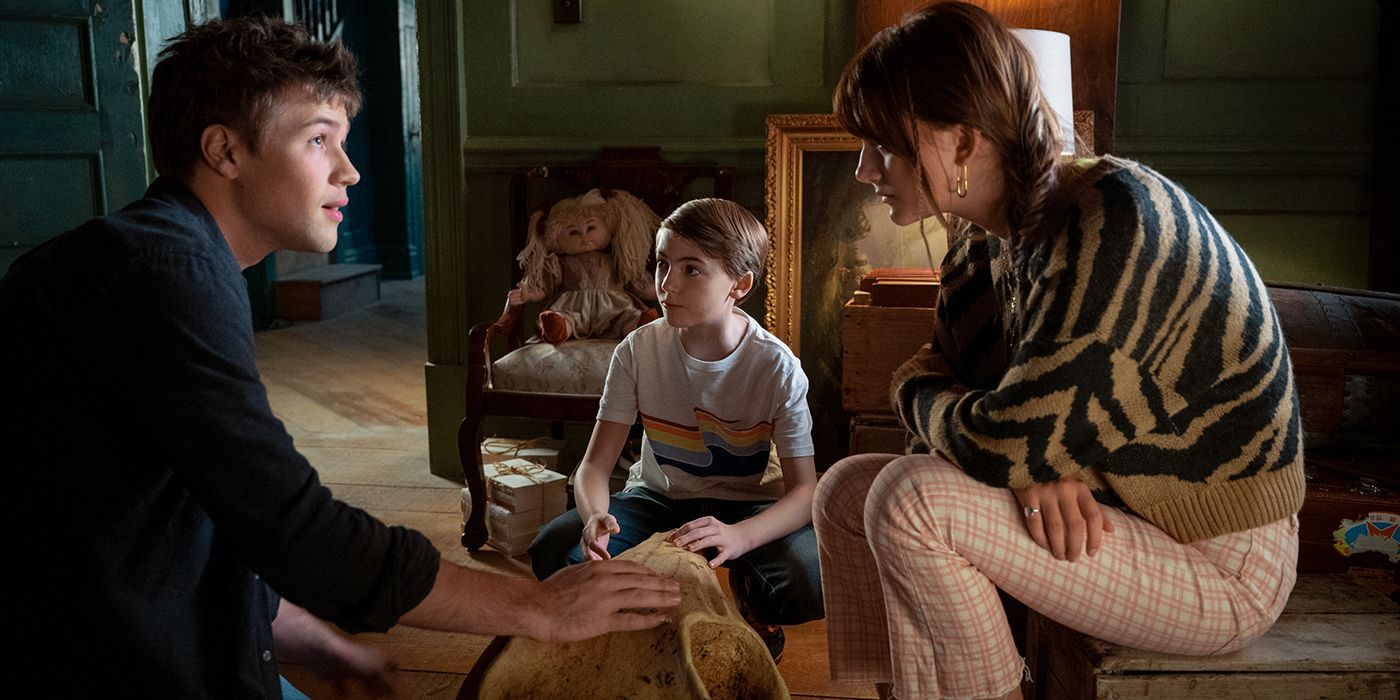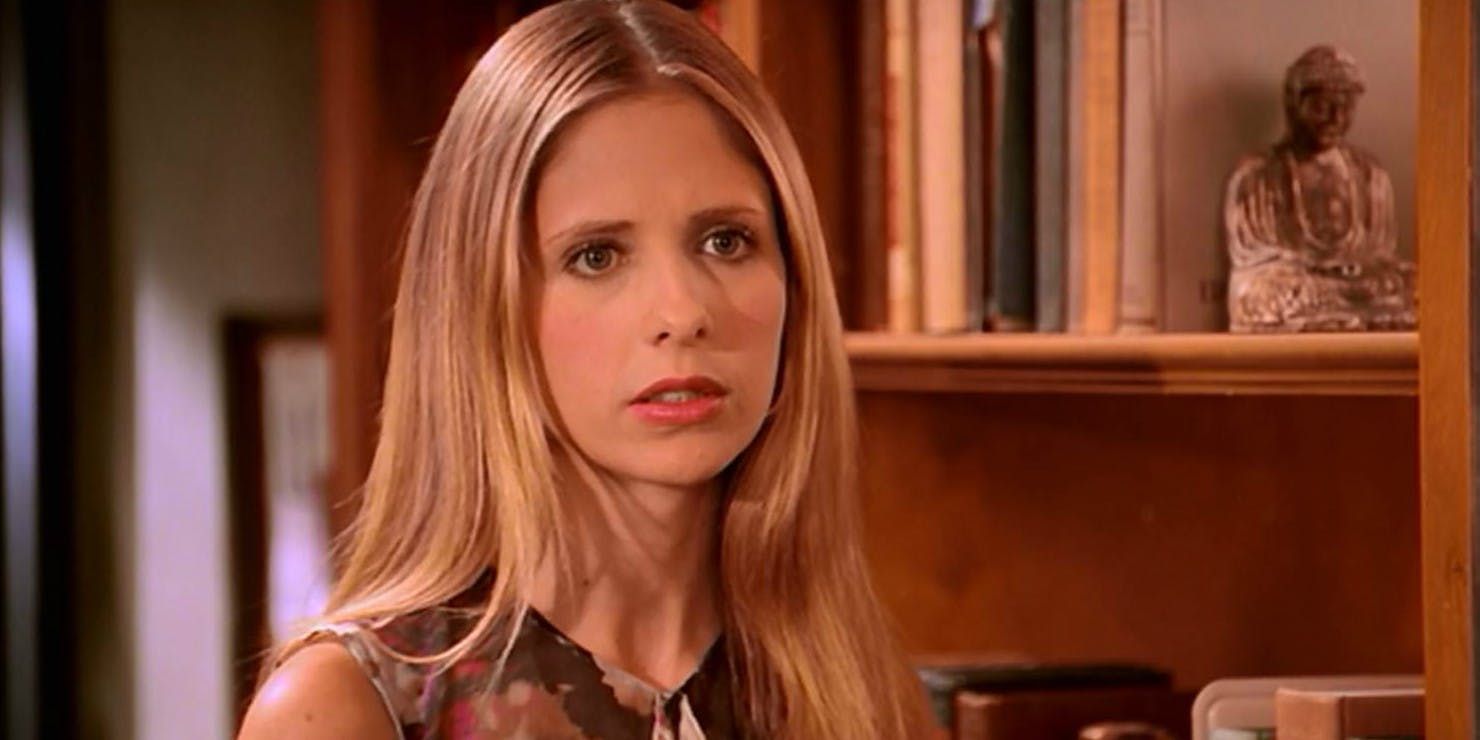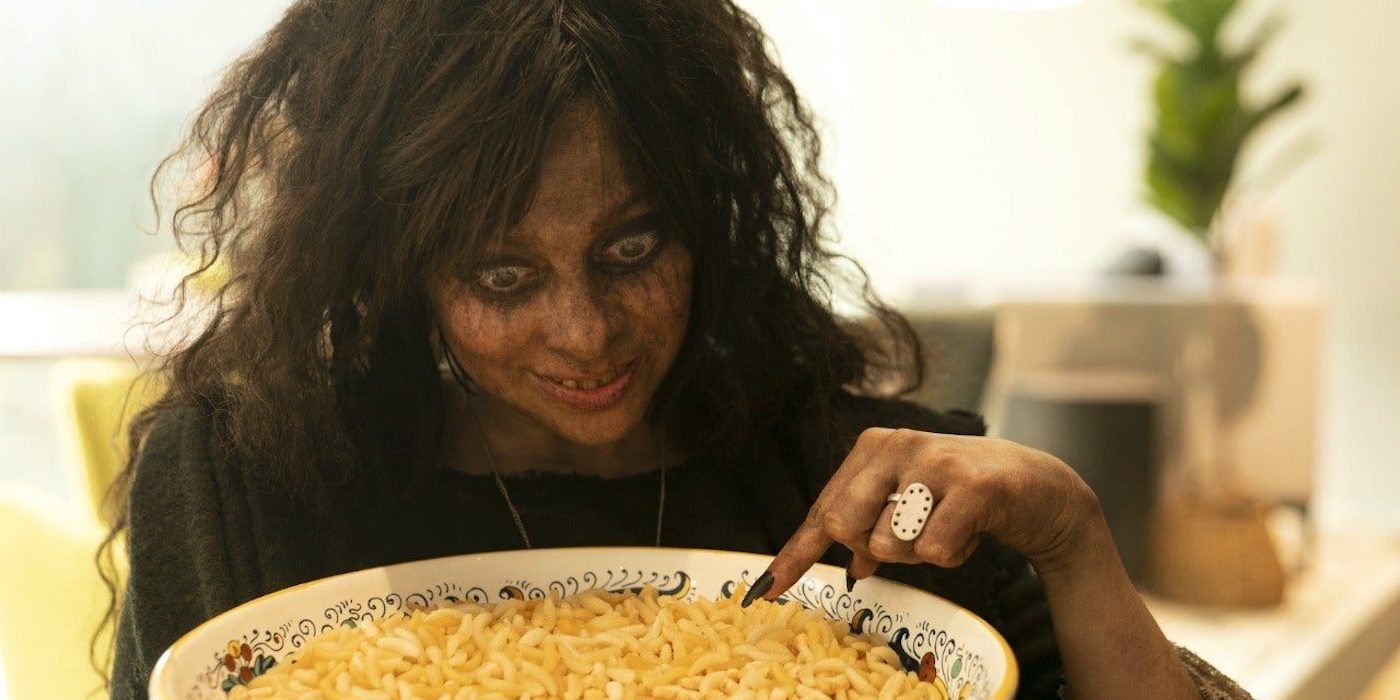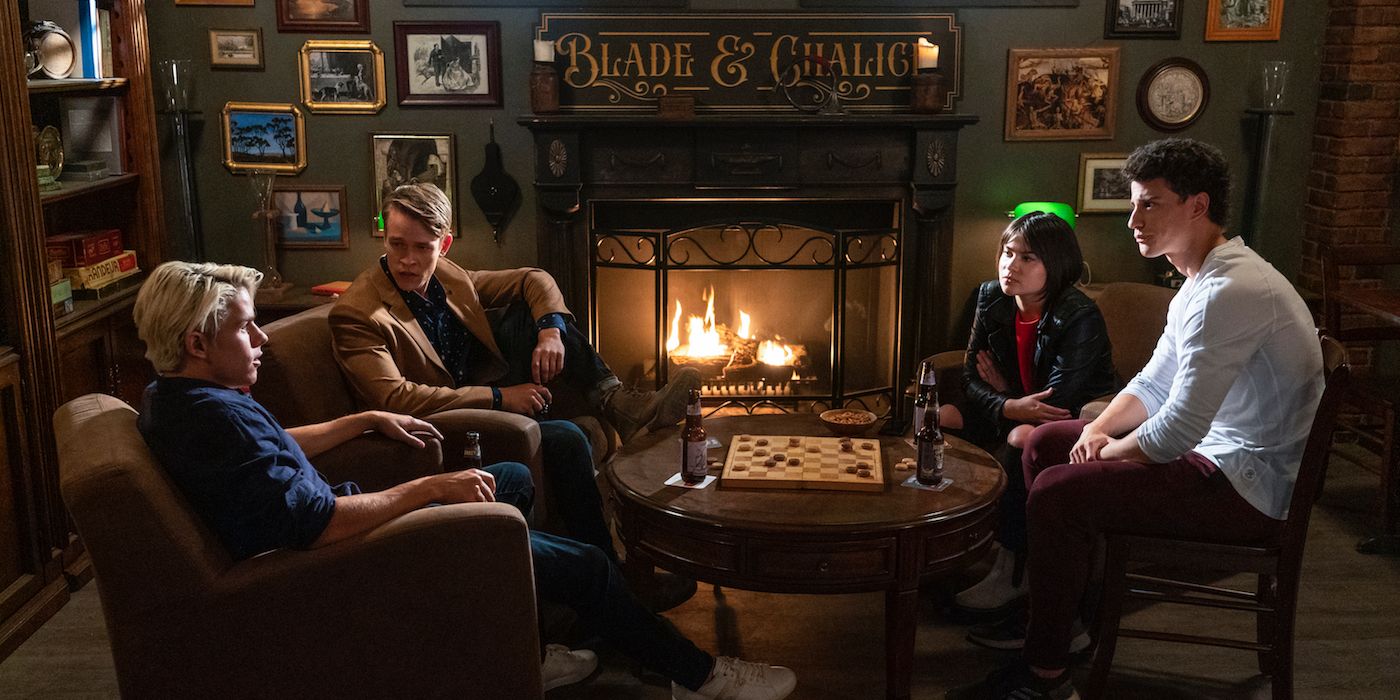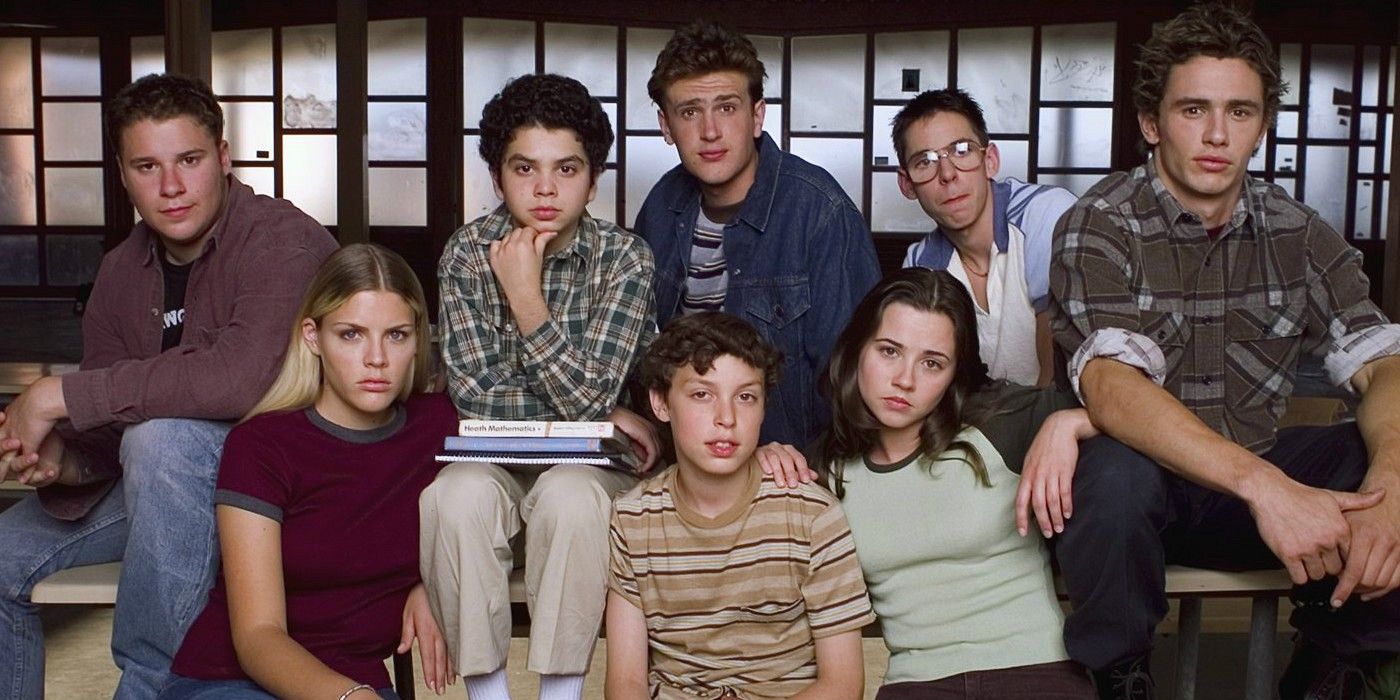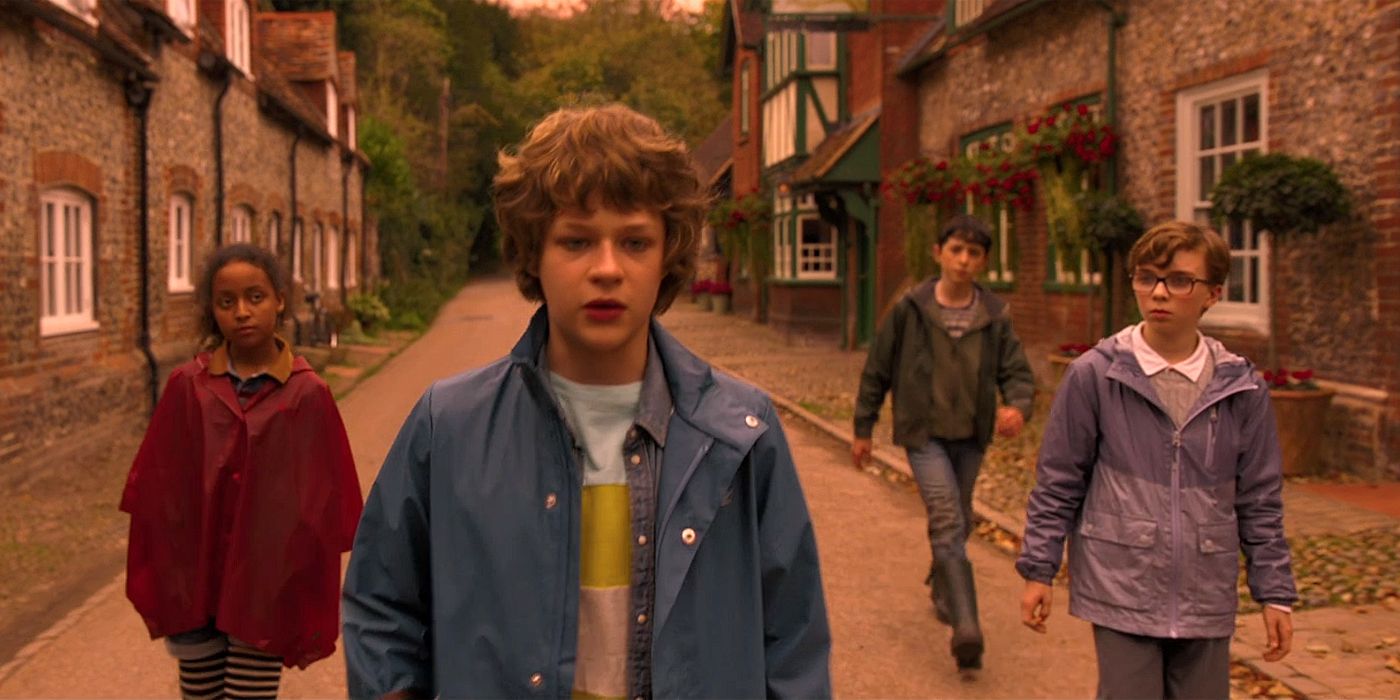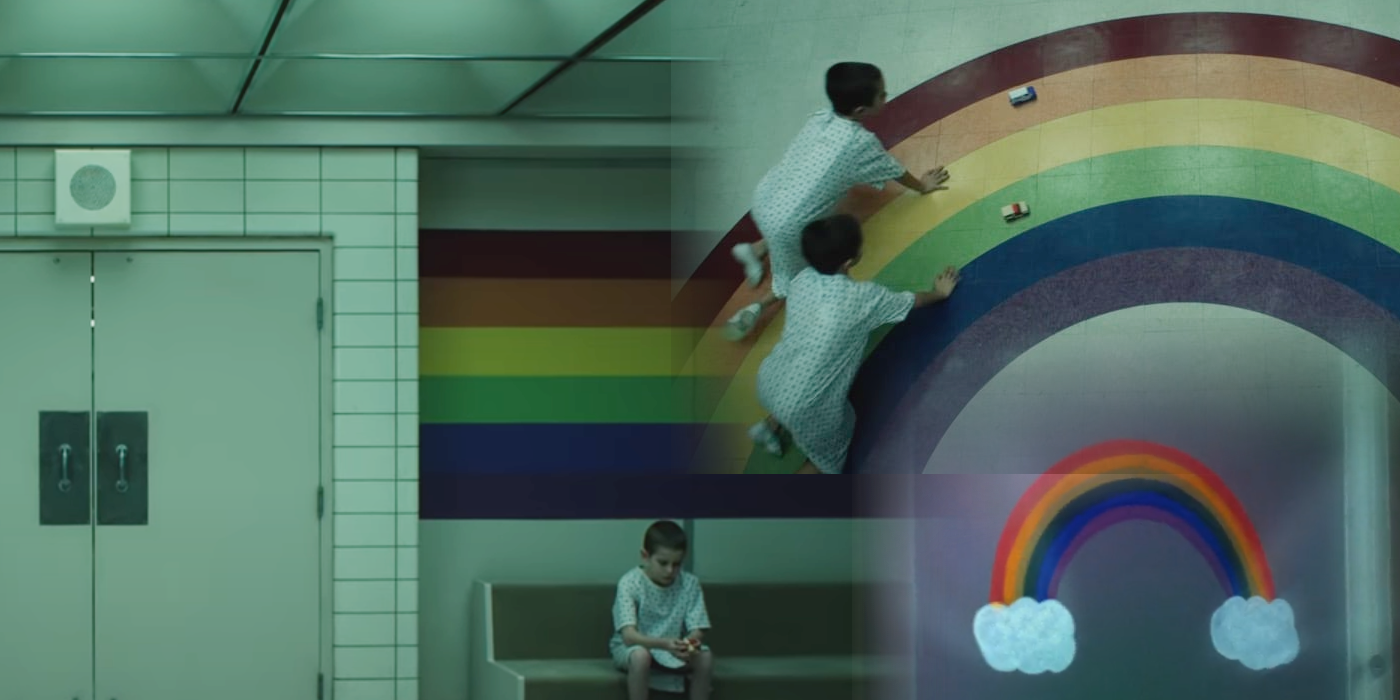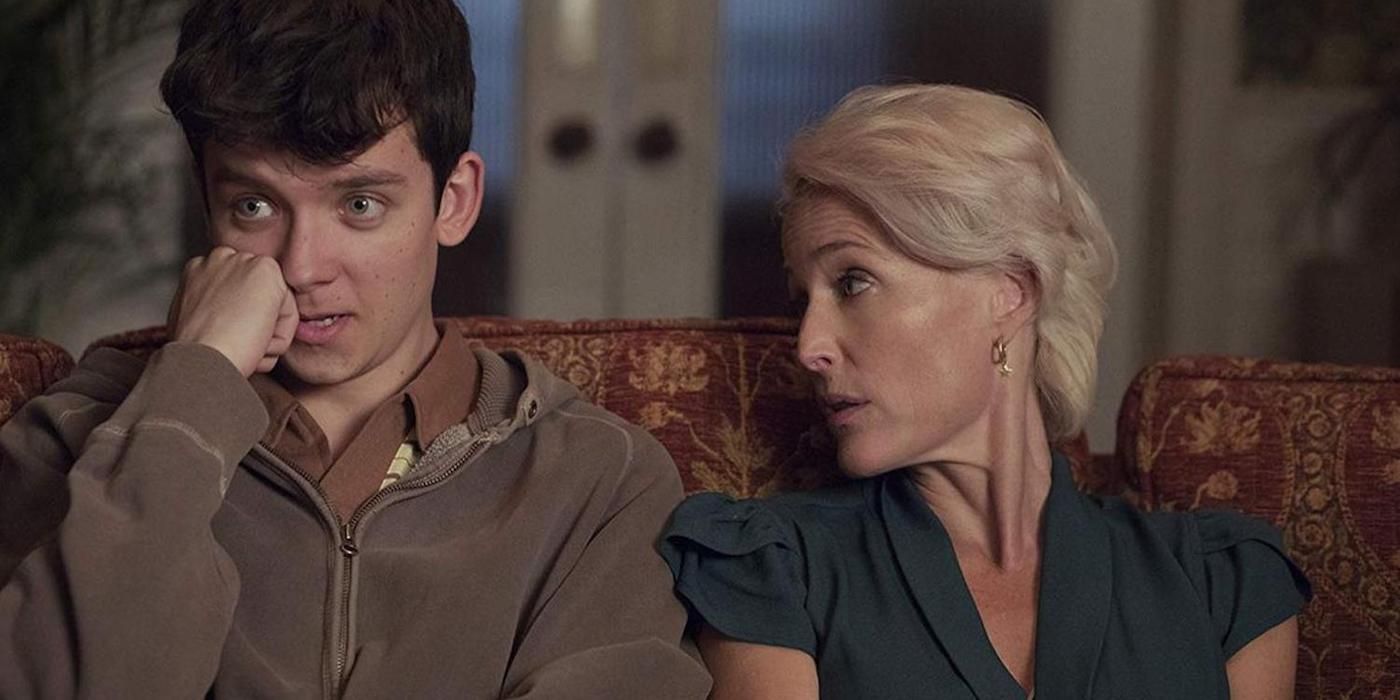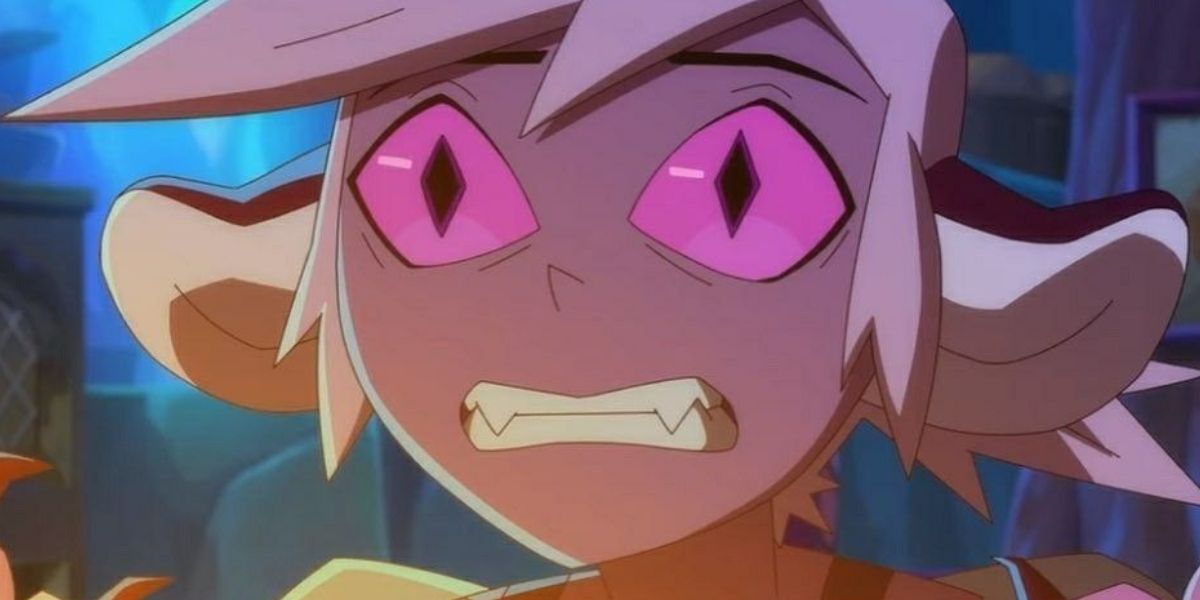Although TV shows are usually placed into categories based on the audience's age, a large number of recent series are beginning to deviate from this unspoken norm. There are quite a few teenage-led narratives that handle mature topics, often with incredible sensitivity. Conversely, shows with adult characters are occasionally simplified to ensure that kids are able to grasp the concepts discussed with ease.
This intersection is incredibly fascinating, as it breaks the unnecessary barriers between series meant for children and for grown-ups. As such, it's next to impossible to classify these shows in any particular age bracket, as they simultaneously function on multiple thematic levels. However, this also means that younger viewers might have different interpretations than older ones.
10 Lost In Space Mixes Lighthearted Humor With Emotional Depth
The Robinson family leaves a dying Earth for Alpha Centauri, but their journey is fraught with dozens of frontier problems. Their ship crashes on a hostile planet, where eleven-year-old William discovers and immediately befriends an alien A.I. he affectionately calls Robot.
A large part of the show's storyline is dedicated to him and his sisters Penny and Judy, but it also covers loss, death, and betrayal, concepts that are technically too heavy for children to watch. However, the interlaced mixture of lighthearted humor and emotional depth in Lost in Space is what makes it such an incredibly balanced series.
9 Locke & Key Throws Its Young Characters Into Wells Of Psychological Darkness
Locke and Key follows Tyler, Kinsey, and Bode, three kids who are uprooted from their homes and taken to their father's hometown, where they experience a series of supernatural events that they never signed up for.
Although the series initially manifests as a slice-of-life mystery for young viewers, its characters are often thrown into wells of psychological darkness that shake the very foundation of their existence (not to mention, permanently amending the Locke family's perceptions of each other).
8 Buffy The Vampire Slayer Proves That Teenagers Can Handle Adult Responsibilities
One of the most influential shows ever made, Buffy the Vampire Slayer helped revolutionize and elevate the television arts to unprecedented levels. Its protagonists are all in high school, but the dangers they face are usually far beyond their years.
Nevertheless, Buffy, Willow, and Xander consistently prove (to themselves and to audiences) that teenagers are more than capable of handling the risks that come with demon/vampire slaying, sometimes more so than adults. Interestingly, the Parents Television Council criticized Buffy the Vampire Slayer because it "contained allegedly indecent material," but their concerns were eventually dismissed by the FCC.
7 Daybreak Flips Between Teen Drama And Black Comedy With Impressive Style
Daybreak forces kids to take charge of their lives after a disastrous apocalypse, during which nearly all the adults are turned into zombies called ghoulies. The series is as gruesome and visceral as it gets, while still maintaining its characters' teenage tendencies.
In fact, they remain as playfully romantic and nonchalant as they did before their world was turned upside down. Daybreak combines teen drama with black comedy, flipping between the two genres with a sophistication that is as impressive as it is unexpected.
6 The Order Spreads Its Delightfully Absurd Wings And Soars
The Order is an atypical twist on the teen fantasy genre, transforming worn-out tropes like werewolves and magic into a delightfully absurdist comedy. While it borrows elements from shows like Sabrina, Supernatural, and Teen Wolf, The Order manages to find enough room to spread its wings and soar.
The voices in the narrative largely belong to college-aged students on the cusp of proper adulthood, turning the series into a deft commentary on the Generation Z experience. On the other hand, The Order tends to bite off more than it can effectively chew, which is why its character motivations are hazy at best.
5 Freaks And Geeks Explores The Banality That Is An Inescapable Part Of School Life
Freaks and Geeks is a Judd Apatow masterpiece - it's one of the first modern TV shows to dedicate itself entirely to the motley lives of suburban youngsters (in the '80s). The show depicts events with delicate precision, avoiding the pitfalls of oversimplification for the singular purpose of attracting more viewers.
Freaks and Geeks is clearly all about the kids, but it doesn't focus solely on teenage problems. On the contrary, the story insists on relaying the banality that is common to school life, something many similar series fail to take into consideration.
4 Good Omens Is Buoyant Enough To Please Most Kids In Its Audience
Good Omens relies on its two main characters, Crowley and Aziraphale, to anchor its story and offer audiences the satisfaction of savoring the chemistry between David Tennant and Michael Sheen.
The unlikely pair of angel and demon are everything to the show (and the book before it), as it quickly becomes evident that any scene without them isn't nearly as zesty. Despite the forgettable presence of the fledgling Antichrist, Good Omens is buoyant enough to appease most children in its audience.
3 Stranger Things Emits An Overwhelmingly Mischievous Vibe
Stranger Things emits an overwhelmingly mischievous vibe. Tongue-in-cheek references to the '80s blend seamlessly with an outstanding cast, masterful screenwriting, and unnerving antagonists. Many of the show's characters begin their arcs in middle school, and as of Season 3, most of them are yet to turn 18.
Stranger Things is a dark examination of parent-child dynamics and how adults can be as irresponsible as the children they are expected to counsel. This facet is visible in the relationship between Dr. Brenner and Eleven, although it pops up at different points in the show.
2 Sex Education Wraps Sensitive Topics Inside Heartwarming Character Arcs
Sex Education is an essential show about an essential component of formal education, the impact of which is either grossly minimized or glossed over without hesitation. The series explores the innumerable perspectives that come with adolescent relationships, doing so with poise and determination.
Sex Education refuses to shy away from sensitive issues, instead wrapping topics from gender identity to contraception inside a series of heartwarming character arcs. There is much that audiences can learn about vulnerability and openness from Sex Education.
1 Kipo And The Age Of Wonderbeasts Directly Acknowledges Its Characters' Personal Identity
Kipo and the Age of Wonderbeasts takes place in the semi-distant future, long after humanity is forced into subterranean cities to survive. The surface world is filled with bizarre animal fusions called Mutes that Kipo has to interact with in order to navigate new terrains. The show is acknowledged for being extremely inclusive, as one of its deuteragonists, Benson, comes out as gay without mincing words or beating around the bush.
This directness with respect to personal identity is admirable, especially since LGBTQ+ children are sorely lacking in TV representation across the board. Kipo and the Age of Wonderbeasts drew comparisons with narratives as diverse as Steven Universe, Alice in Wonderland, and the Fallout video game franchise.

